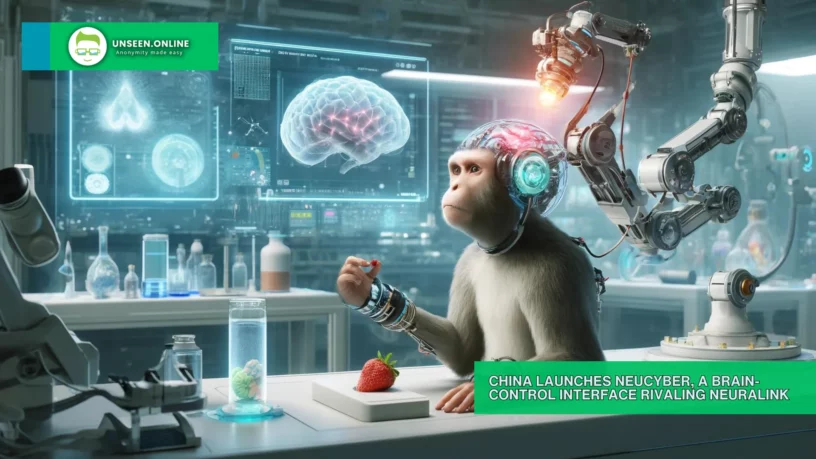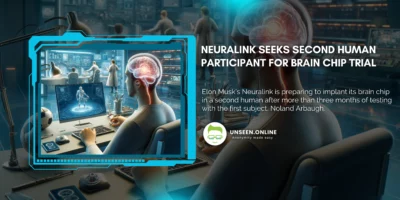In a significant advancement in neurotechnology, China has introduced its own version of a brain-computer interface (BCI), dubbed Neucyber, matching strides with initiatives like Elon Musk’s Neuralink. According to Reuters, which cites a report from the China-backed news outlet Xinhua, this new development was showcased at the recent Zhongguancun Forum in Beijing.
The demonstration involved a monkey equipped with the Neucyber BCI, which enabled it to control a robotic arm and grasp a strawberry using only its thoughts. This feat was achieved through the Neucyber chip, which incorporates flexible microelectrodes and sophisticated neural signal acquisition devices coupled with a generative neural decoding algorithm.
Professor Luo Minmin of Tsinghua University detailed that the BCI captures minute changes in brain signals, decodes the user’s intentions, and translates them into actions, allowing for the control of machines without physical interaction. While Neucyber is currently tested only in animals, its counterpart, Neuralink, has already moved to human trials in the US, with the first human participant reportedly able to play video games using the interface.
Furthermore, Tsinghua University has made earlier forays into BCI with the implantation of the Neural Electronic Opportunity (NEO) chip in a quadriplegic patient, enabling them to perform tasks like drinking water with a specialized glove.
As China continues to prioritize brain interface technology, with new labs and ongoing research, the potential applications of such technology promise revolutionary changes in how humans interact with machines.






